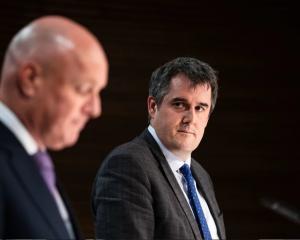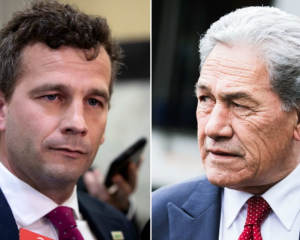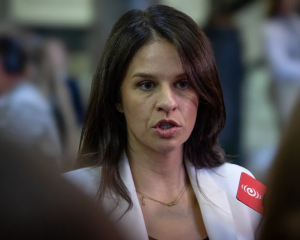Not for him the notion of taking a few days off post-election to relax, rejuvenate and reflect in the wake of his personal triumph at the ballot box before easing himself back into the heavy and relentless workload that comes with the title of prime minister.
Mr Key instead hit the ground running in the aftermath of the election, thereby leading by example.
He is acutely conscious that his third successive term in power may well be his most difficult; that public expectations of his Government might exceed its ability to deliver, especially if the economy slows dramatically.
Mr Key knows that - despite Labour's deep-seated problems - history says this term is odds-on to be his last.
As if to remind him that nothing is forever, the mathematics of seat distribution under MMP unexpectedly conspired with the final election tallies to deprive him of his precedent-setting outright majority achieved on election night.
By the time the figures were released, however, Mr Key had already negotiated confidence and supply agreements with the Maori Party, Act New Zealand and United Future.
It was too late for those parties to extract more concessions from National after those final results gave them a marginal increase in their combined leverage over the ruling party.
While Labour was slowly getting around to setting up a post-election review of its lamentable performance, Mr Key had already conducted his own postmortem on National's showing.
That task would have involved identifying where National was vulnerable and then neutralising that vulnerability - or even turning it to National's advantage.
It is this constant self-scrutiny which makes Mr Key such a difficult opponent. It is a major reason why Labour failed to gain traction during the election campaign.
Mr Key is now taking advantage of Labour being completely distracted by its contest for the party's leadership.
He used Monday's reshuffle of ministerial portfolios to unveil a new structure designed to ensure better ministerial oversight of the two intelligence agencies, the Security Intelligence Service and the Government Communications Security Bureau.
Mr Key's prime ministership has been bedevilled by the ongoing embarrassment flowing from the GCSB.
He installed the Cabinet secretary Rebecca Kitteridge as chief executive to sort out the institution.
Now comes further upheaval.
The Prime Minister will retain overall responsibility for intelligence matters.
But another minister, Attorney-general Chris Finlayson, will have responsibility for the day-to-day operations of the intelligence agencies including the approval of interception warrants.
The new configuration conveniently takes Mr Key out of the direct firing line should the SIS and the GCSB be caught exceeding their powers.
Were things to continue to go awry at the GCSB, it would be Mr Finlayson who would face questions in Parliament.
Mr Key could argue with a straight face that the new structure simply replicates the British model.
Moreover, having the Attorney-general in charge of the two agencies should mitigate against them conducting illegal surveillance and intrusions into privacy.
By announcing the new structure now, Mr Key might also have headed off any criticism or recommendations made by the Inspector-general of Intelligence and Security Cheryl Gwyn once she has completed the inquiry into whether information was released by the SIS for political purposes.
Mr Key also intends seeking bipartisan buy-in by Labour into the crafting of new legislation covering the work of the two intelligence agencies.
Labour will argue that more genuine political oversight of the agencies' activities is needed.
Likewise, Mr Key has taken the initiative on whether or not New Zealand should be sending some element of the armed forces to Iraq to counter Islamic State.
Mr Key is trying to paint the inevitable deployment of some element of the armed services as a New Zealand decision, rather than one dictated by Washington.
National's other vulnerabilities include affordable housing and child poverty, the latter matter having prompted Mr Key to request fresh ideas and initiatives from his mandarins.
Mr Key may be making a personal commitment to tackling child poverty, but National is starting from a long way behind.
A special ministerial committee on poverty toiled away to minimal effect during the last term, although then it was an initiative of the Maori Party.
Its contribution to the debate on poverty was to commission reports and papers which largely went unread.
New Zealand does not even have an official measure of poverty - presumably because National does not want to be embarrassed by it showing poverty is increasing.
Instead, this week, we heard Bill English's unique contribution to the debate - that council-employed urban planners were responsible for increasing income inequality and rising poverty levels.
Mr English was not so much off beam as off the planet.
According to the complex analysis of household incomes that Mr English likes to trot out, the big jump in poverty levels occurred in the mid-1990s - long before house prices started spiralling up.
It as also puzzling that Mr English was suddenly talking about local authority bureaucrats having ''probably done more'' to increase income inequality when he had spent the election campaign strenuously rejecting the notion that the gap between rich and poor was expanding.
When it comes to fresh ideas about solving child poverty, you do not have to look any further than the exhaustive work of the expert advisory group set up by the Commissioner for Children.
It estimated that its recommendations would cost between $1.5 billion and $2 billion to implement.
That is roughly the same as the cost of National's intended tax cut.
We may not be able to measure poverty, but voters will be able to assess down to the last dollar just how committed Mr Key really is to tackling it.
• John Armstrong is The New Zealand Herald political correspondent.











